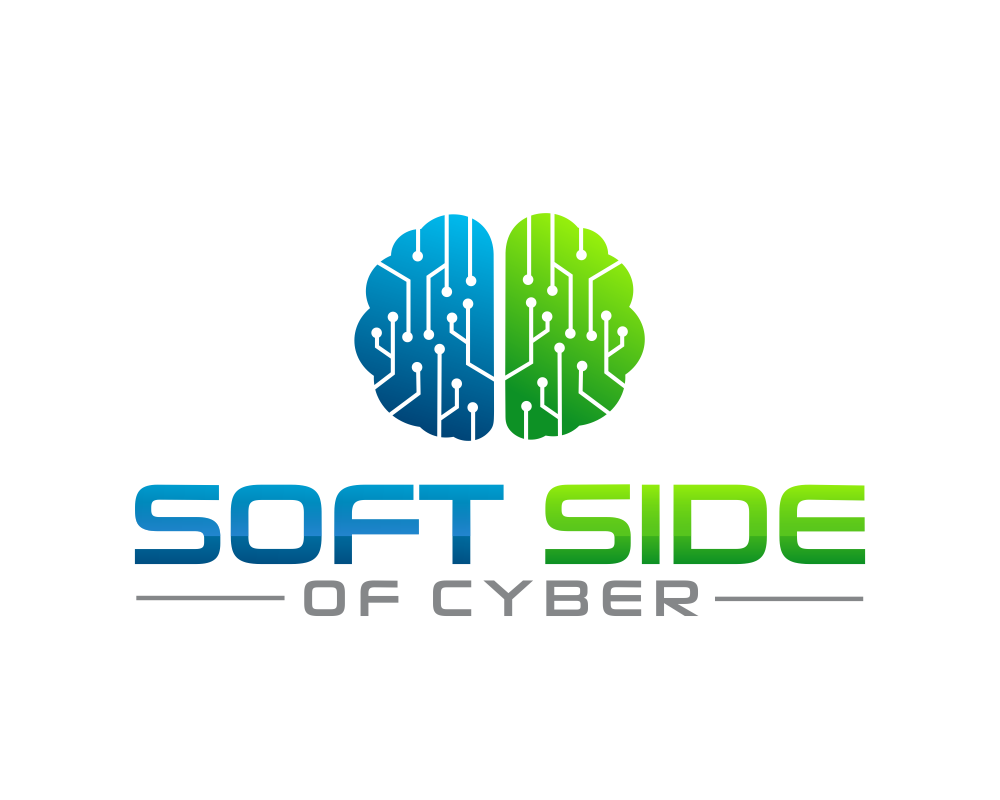
Dealing with imposter syndrome in cyber
Cybersecurity moves fast. There is enormous demand, and moving up into more senior roles can happen quickly. As a result, we frequently find ourselves in unfamiliar situations, sometimes with intense pressure. I have spoken with so many people in this field about their struggles with feelings of inadequacy.
Wikipedia defines imposter syndrome as "a psychological occurrence in which an individual doubts their skills, talents, or accomplishments and has a persistent internalized fear of being exposed as a fraud."
Throughout my career, at different points, I have found myself in positions of being stretched. I was feeling totally out of my depth. I have been left questioning and stressing why I was selected for the role, for the project, or the team, and the weeks leading up to starting my full-time job left me nervous. I vividly recall sweating through my interviews and prep when I joined Cigital. I have been thrown into and jumped into unfamiliar situations where I learned on the fly. That feeling of imposter syndrome has flared up throughout my career, as if I'll be exposed somehow or let someone down if I fail.
It can be crippling.
This article will explore how to navigate imposter syndrome working in cybersecurity. I will also discuss how imposter syndrome can be a strength in some situations.
Causes of Imposter Syndrome in Cybersecurity
Understanding the causes of something is among the first steps to managing it. Imposter syndrome can flare up due to many factors, some of which are exacerbated in cybersecurity.
The concern around and newfound interest in data breaches continues to rise.
Boards and regulators are more interested than ever in cybersecurity.
It's all getting stressful and all the more intense.
Here are some key factors I've observed:
- High expectations and standards: The cybersecurity industry has high expectations and standards, which can be daunting for even the most seasoned professionals. The pressure to perform at a high level and the fear of falling short can contribute to feelings of inadequacy and self-doubt.
- Constantly evolving technology: The technology landscape continually evolves, and staying up-to-date can be challenging. The need to learn and adapt quickly can be overwhelming, and feeling like falling behind can lead to imposter syndrome.
- Competitive environment: The cybersecurity industry is competitive, and the pressure to stand out and be recognized can lead to feelings of inadequacy. Comparing yourself to others and feeling like you're not measuring up can contribute to imposter syndrome.
- Fear of failure: Fear of failure is a common cause of imposter syndrome. When you're constantly striving for perfection, any mistake can feel like a failure, leading to negative self-talk and feelings of inadequacy.
Recognizing these causes of imposter syndrome is the first step in managing it. By acknowledging the factors that contribute to imposter syndrome, you can begin to develop strategies to address these feelings and thrive as a cybersecurity professional. Remember, you are not alone in your struggles with imposter syndrome; seeking help and support is a sign of strength, not weakness.
Spotting the Signs
According to an article at Very Well Mind, the following are characteristics that manifest when someone is struggling with imposter syndrome:
- An inability to realistically assess your competence and skills
- Attributing your success to external factors
- Berating your performance
- Fear that you won't live up to expectations
- Overachieving in your goals and performance
- Sabotaging your success
- Self-doubt
- Setting very challenging goals and feeling disappointed when you fall short
The things on this list that resonate most with me are over-achieving (or over-working), setting excessively challenging goals, beating myself up, and constantly berating my performance. I'm unsure when this started, but these factors have consistently flared up throughout my career. Sometimes I can keep them at bay; other times, they grip me.
I have had countless conversations with mentees that point to their struggles with self-sabotage. Taking on more stuff, so they're too busy to invest in the things that matter genuinely. This cycle manifests in many toxic ways and strongly correlates with positive habit setting.
It can be helpful to have the self-awareness to know if you are exhibiting any of these signs. If you are in a place where you're struggling to do that yourself, an accountability partner or mentor may be an invaluable resource for you.
Self-reflection and meditation (or generally quiet time) can be helpful along these lines. I'll discuss this in more detail later in this article, but this is a good time to plug the RESET tool we put together for self-reflection. We're taking it down at the end of this month, so check it out!
Check out our quick reaction video to this article below.
Consequences
As burnout and mental exhaustion continue to surge across our discipline, we're missing opportunities to help people and deliver on the impact we all aim to. Simultaneously, the pressure continues to rise.
There are more breaches, technical complexity, demands, alerts, things to prioritize, media attention, and so on. These opposing forces are powerful fuel for imposter syndrome.
And so we're left feeling burned out, tired, distracted, and disconnected. Burnout can lead to feelings of hopelessness and even depression.
All in all, it's not good.
Beyond the mental and spiritual unrest from this toxic cycle, one of the most disturbing things I think imposter syndrome creates is hesitancy for boldness. Not all risk is a bad thing. The significant challenges ahead of us and all around us demand grit and out-of-the-box thinking. Unfortunately, those struggling with imposter syndrome are less likely to step out on a limb and challenge the status quo.
You're a fraud. You're a failure. Why in the world would it be your idea that works?
That kind of self-limiting talk will keep your ideas stuck in your head. But, unfortunately, it will also keep you from seeking valuable experiences that could stretch and grow you as a cybersecurity professional.
Another consequence of imposter syndrome is a lack of confidence. Feeling confident in your work can be hard when you doubt your abilities and downplay your accomplishments. This lack of confidence can limit your potential and hold you back from taking on new challenges. Instead, start somewhere and try to learn something new; you might surprise yourself.
Navigating the Struggle
You and I are not alone in dealing with this. However, there are tried and true ways to begin navigating these feelings. Here are a few strategies to try:
- Identify your triggers: You need to know yourself. Knowing what triggers these toxic thought patterns, the feelings of self-doubt and inadequacy is critical to begin managing them, and for example, keeping a journal or taking note of situations where you feel like a fraud and reflecting on what may have caused those feelings. Once you know your triggers, you can develop strategies to manage them.
- Celebrate your accomplishments: It's easy to downplay your achievements and focus only on your mistakes, especially if you feel down or anxious. However, celebrating your wins can help boost your confidence and self-worth. Take time to acknowledge and celebrate your successes, no matter how small. Don't stop at the small, though. Keep stepping and moving forward.
- Seek support from others: Talking to a trusted colleague, mentor, or friend about your feelings can help you feel less alone and provide a fresh perspective. In addition, seek out others in your industry who have experienced imposter syndrome and learn from their coping mechanisms.
- Practice self-care: Self-care is critical to managing imposter syndrome. I wrote about why this is important and why you shouldn't be beating yourself up over the need to do it. Instead, take breaks when needed, prioritize sleep and exercise, and engage in activities outside work that bring you joy. Remember, caring for yourself is not selfish; it's necessary for your well-being.
This is an ongoing process. It's okay to seek help and support from others. You can manage imposter syndrome and thrive as a cybersecurity professional by identifying triggers, celebrating accomplishments, seeking support, and practicing self-care.
Potential Benefits
I'm currently re-reading Adam Grant's Think Again, and I was struck by it as he described some of the possible advantages of those who have imposter syndrome. The counter to these individuals would be those who deal with over-confidence in their abilities. Think of each as opposite ends to an extreme.

The three benefits cited here are working smarter, working harder, and seeking insights from others. That last one is huge.
People who think they know everything about something cease to learn, even when the environment around them changes.
Those frequent unlearning and re-learning cycles can help us remain adaptable to complex situations. Seeking input and ideas from others diversifies our ideas. Pulling mental models from others and combining them with ours can be a great way to find new ways to solve problems, think, to create.
Concluding Thoughts
In the fast-paced and constantly evolving world of cybersecurity, it's not uncommon to struggle with imposter syndrome. Don't isolate yourself. Don't beat up on yourself up further because you struggle with it.
Imposter syndrome can be crippling. In this article, I shared some of my experiences with imposter syndrome. I explored the causes, consequences, and coping mechanisms for dealing with it in the context of the cybersecurity industry. High expectations and pressure, constantly evolving technology, and fear of failure are among the causes of imposter syndrome.

